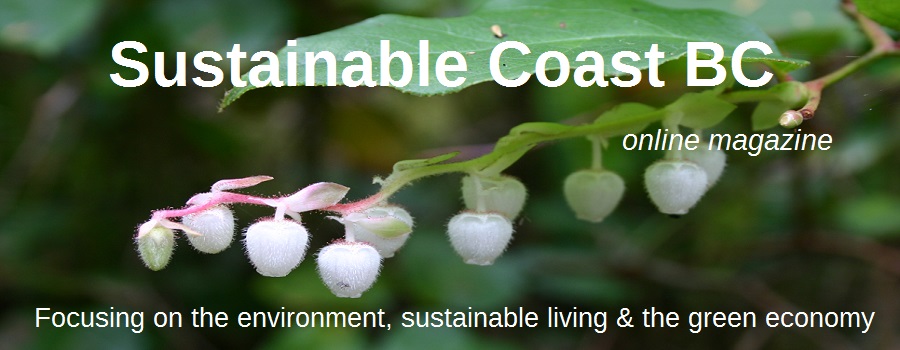News
First Nations and concerned community members from the Peace River Valley landed a canoe at the Legislature in Victoria to deliver a message to the Premier to stop the Site “C” Dam on Sunday, September 19.
The rally was organized by four Treaty 8 First Nations – the Doig River, Halfway River, Prophet River and West Moberly First Nations – all of whose Treaty rights will be harmed by the project, as well as the Wilderness Committee, the Peace Valley Environment Association, and the Sierra Club of BC.
Chief Liz Logan of the Treaty 8 Tribal Association read the Declaration that was signed and ratified by the concerned First Nations groups of northern BC who will be adversely and directly affected by the Site C Dam construction and operation. [ Full text of the Declaration is attached, below, and the video below documents Chief Liz Logan reading the Declaration. ]
The Declaration was to be presented to the Liberal government, but no Liberal government representatives were present to accept the document.
Site “C” will impact on Treaty 8 land in northern BC, the home of several First Nations. These lands have been utilized by the Treaty 8 First Nations to practice traditions, including hunting, trapping, and fishing, for generations. The project will destroy wildlife habitat, 7000 acres of prime agricultural land and, even people’s homes. The dam would submerge key calving grounds for moose and disrupt bull trout migration while creating a barrier blocking wildlife at the narrowest waist of the continentally important Yellowstone to Yukon Corridor.
Declaring opposition to the dam, and vowing to use any lawful means to stop the Site C Dam from proceeding, the First Nations called the Site C Dam "neither green nor clean".
[blockquote]Excerpt from the Declaration:
We, the undersigned chiefs and supporters, on behalf of our respective first nations, call upon the Premier and the Government of British Columbia to:
• Support and adequately fund a full, independent comprehensive cumulative assessment with a pre-industrial baseline of the proposed Site C Dam on the Peace River region and the Athabasca and MacKenzie Delta, including a full environmental and cultural, assessment of the impacts of the two previously constructed upstream dams, and how and will continue to impact and affect will affect the Treaty rights and interests of the First Nations;
• Support and adequately fund a full, independent study of a" viable alternative options for the production of electricity for the Province's needs;
• Halt any and a" efforts of the proposed project until the completion of these full, independent studies;
• Re-instate the authority of the BC Utilities Commission to examine the true economic impacts to the people of British Columbia of constructing the Site C Dam; and
• To allow formal participation by First Nations in the decision making process concerning the proposed Site C Dam and to agree that where no agreement can be reached on the proposed Site C Dam to agree to appoint together with First Nations an impartial decision maker.
Among the speakers at the rally, Jane Sterk, B.C. Green party leader, told the crowd BC Hydro’s own statistics show the province can achieve its energy needs through conservation. “We need to explore other energy sources, like geothermal, wind and tidal — not just hydro. We need to diversify,” she said.
The rally was a powerful end to the week’s events concerning Site “C”. On September 16-17 First Nations leaders, from across BC, Alberta and the Northwest Territories, and several concerned conservation groups gathered for a summit in Fort St John to address the Site C issue, and draft the joint statement about the project and its impacts.
Following the Summit, buses and vans filled with concerned members of the local community left Fort St. John to journey to Victoria, where they paddled down the Gorge Waterway to deliver the statement in birch bark containers harvested within the proposed Site C Dam’s flood zone.
“Concerned British Columbians need to stand up now to make others, especially the BC Government, aware of how this so-called “green and clean” dam will impact on our Treaty 8 rights, as well as the interests of all British Columbians,” said Chief Liz Logan. “This is the third major dam project on the Peace River.” she said, “If it goes ahead, it will destroy valuable river and wetland ecosystems, both in the Peace River Valley and further downstream in the Athabasca and Mackenzie Deltas.”
